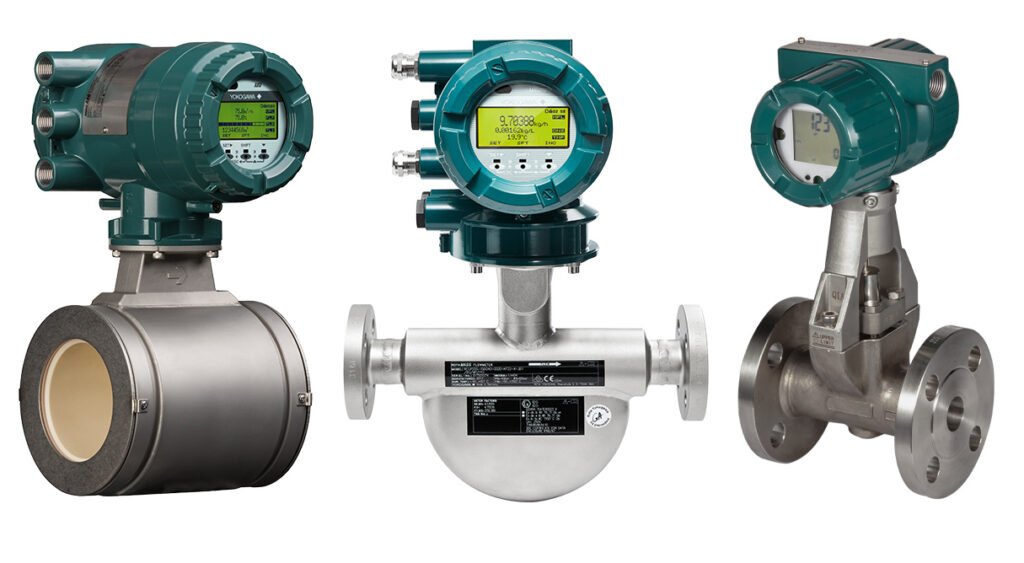In the world of industrial processes, where precision and efficiency are paramount, selecting the right flow meter can make all the difference. Flow meters are the unsung heroes that quietly measure the flow of fluids, ensuring that processes run smoothly and resources are optimized. But with various types of flow meters available, how do you determine which one is the best fit for your specific needs? In this article, we will explore the world of flow meter, compare different types, and provide insights to help you make the right choice.
Flow meters are devices designed to measure the rate of fluid flow through a specific point over a defined period. They are the vital tools that monitor the flow of liquids and gases in industries ranging from manufacturing and pharmaceuticals to oil and gas. Without flow meters, industries would operate blindly, unable to optimize processes and allocate resources efficiently.
Types of Flow Meters
Flow meters come in various types, each employing distinct principles for measurement. To make an informed choice, it’s essential to understand the key types:
- Electromagnetic Flow Meters: Utilize Faraday’s law of electromagnetic induction to measure flow. Ideal for conductive fluids, they offer high accuracy and can handle corrosive materials.
- Ultrasonic Flow Meters: Rely on sound waves to determine flow velocity. They are non-invasive and can measure a wide range of fluid types, making them versatile for various industries.
- Differential Pressure Flow Meters: Measure the pressure drop across an obstruction in the flow path. They are cost-effective and suitable for a broad spectrum of applications.
- Turbine Flow Meters: Employ a rotating turbine to measure flow rate. They are commonly used in the oil and gas industry and offer high accuracy for clean, low-viscosity fluids.
Choosing the right flow meter involves assessing several factors:
- Fluid Type: Consider the nature of the fluid you need to measure. Some flow meters are better suited for liquids, while others excel with gases.
- Flow Rate: Determine the expected flow rate, as different flow meters have varying measurement ranges.
- Accuracy Requirements: Precision matters. Some applications demand extremely accurate measurements, while others can tolerate a degree of variance.
- Environmental Conditions: Evaluate the environmental factors, including temperature, pressure, and the presence of corrosive or abrasive substances.
Comparing Accuracy and Precision
The accuracy and precision of a flow meter are crucial considerations. Electromagnetic flow meters, for example, provide exceptional accuracy for conductive fluids. Ultrasonic flow meters excel in versatility and can deliver accurate measurements across a wide range of flow conditions. By understanding the strengths and weaknesses of each type, you can choose the one that aligns with your accuracy needs.
Installation requirements and maintenance considerations can significantly impact the cost and effectiveness of a flow meter. Differential pressure flow meters are relatively easy to install and maintain, making them cost-effective options. However, some flow meters, like electromagnetic or ultrasonic types, may require more intricate installation procedures. Ensure you account for installation and maintenance in your decision-making process.
Real-World Applications
To illustrate the practicality of different flow meter types, let’s look at some real-world applications:
- Electromagnetic Flow Meters: These are often used in water treatment plants to measure the flow of clean water. Their accuracy ensures precise distribution and billing.
- Ultrasonic Flow Meters: In the oil and gas industry, ultrasonic flow meters are employed to monitor the flow of crude oil through pipelines. Their non-invasive nature is advantageous when dealing with potentially hazardous substances.
- Differential Pressure Flow Meters: Commonly found in HVAC systems, these flow meters help maintain efficient climate control in commercial buildings.
Cost Considerations
Cost is a critical factor when choosing a flow meter. While differential pressure flow meters are often budget-friendly, they may not offer the same level of accuracy as electromagnetic or ultrasonic flow meters. It’s crucial to weigh the initial investment against long-term operating costs and accuracy requirements.
Environmental Factors
Consider the environmental conditions in which the flow meter will operate. For instance, in industries where the fluid may contain abrasive particles, a flow meter like the ultrasonic type, which doesn’t have moving parts in the flow path, could be more suitable and durable.
Future Trends in Flow Meter Technology
As technology advances, so does flow meter technology. The integration of the Internet of Things (IoT) and data analytics is opening new possibilities. Smart flow meters can provide real-time data insights and remote monitoring, enhancing their utility in Industry 4.0 applications. Additionally, advancements in calibration techniques and miniaturization are shaping the future of flow measurement, offering improved accuracy and flexibility.
Case Studies and Expert Recommendations
Real-world case studies and expert recommendations provide valuable insights into selecting the right flow meter. Industries that have successfully implemented specific flow meters can serve as benchmarks for your decision-making process. Seek expert advice from flow meter manufacturers and professionals who can provide tailored recommendations based on your industry and application.
In conclusion, the choice of the right flow meter is pivotal in ensuring precise fluid control in industrial processes. By considering factors such as fluid type, flow rate, accuracy requirements, and environmental conditions, and by comparing different flow meter types, you can make an informed decision that optimizes processes, reduces costs, and contributes to overall operational excellence.

